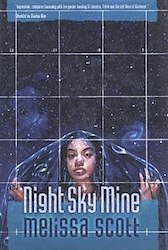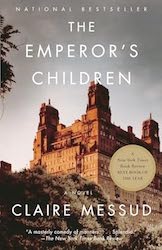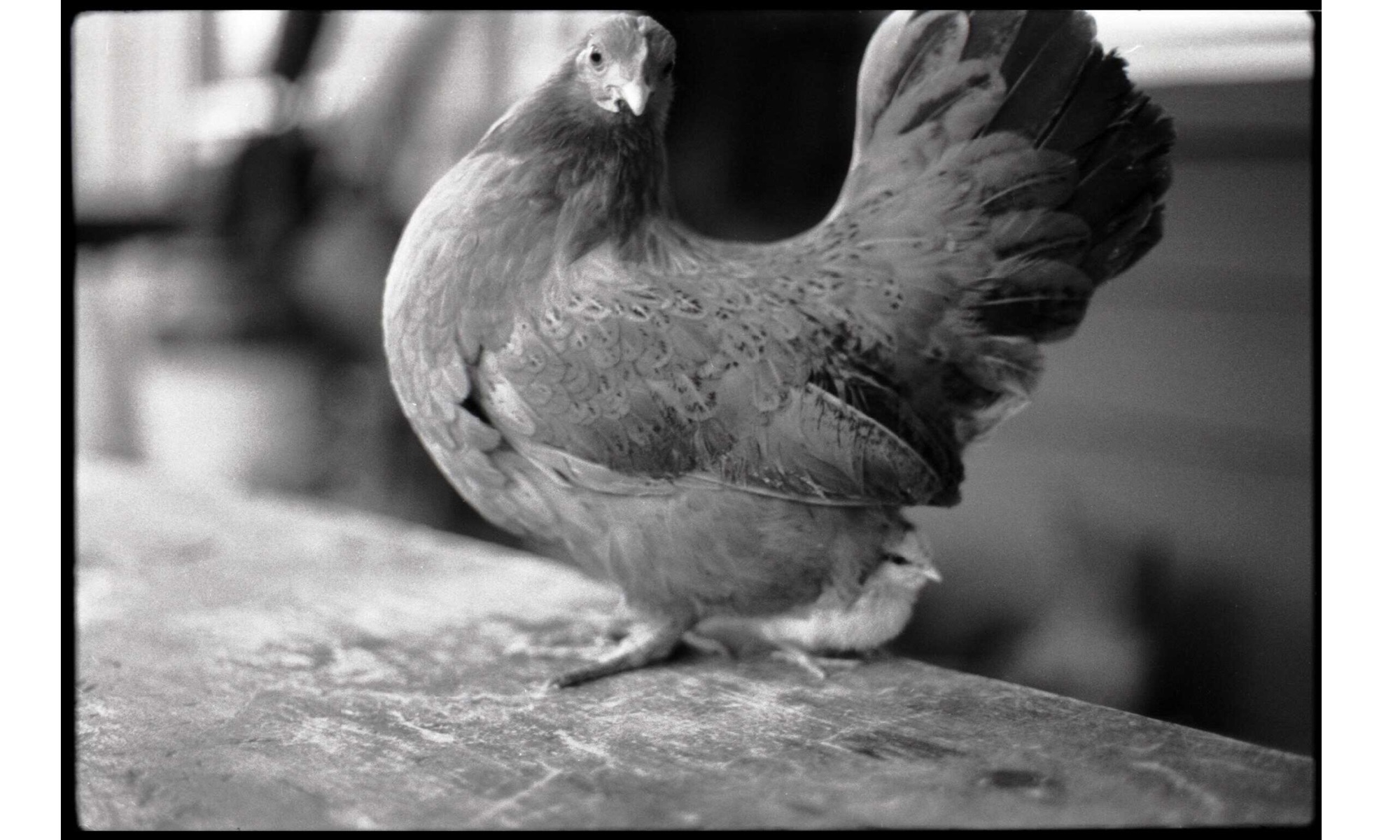As we close in on the Top 10, the next two titles, also works of fiction, are books that I have been meaning to read for a while, and finally got around to last year. One is a science fiction novel by an author whose work I tend to enjoy but I’ve only read a handful of, and the other was the breakthrough novel of a Massachusetts author that I am finally going back to.
#11 – Night Sky Mine by Melissa Scott (1996)
 Melissa Scott creates a complex world where humanity is divided into Company, Union, and Traveller, and computer programs are anthropomorphized as animal and plantforms. The Internet has grown to include something called the Wild Net were there programs run wild and free, possibly even threatening to grow into something so monstrous as to destroy all other programs in the system. In this universe a small group of disparate characters find themselves thrown together to solve a mystery that blossoms into something bigger than they imagine. Scott’s imagination and commitment to racial and sexual diversity was ahead of its time in 90’s science fiction, and her imagination was taking early technological advances in software and web work to unimaginable heights.
Melissa Scott creates a complex world where humanity is divided into Company, Union, and Traveller, and computer programs are anthropomorphized as animal and plantforms. The Internet has grown to include something called the Wild Net were there programs run wild and free, possibly even threatening to grow into something so monstrous as to destroy all other programs in the system. In this universe a small group of disparate characters find themselves thrown together to solve a mystery that blossoms into something bigger than they imagine. Scott’s imagination and commitment to racial and sexual diversity was ahead of its time in 90’s science fiction, and her imagination was taking early technological advances in software and web work to unimaginable heights.
#10 – The Emperor’s Children by Claire Messud (2006)
 I’m not someone who is in the habit of reading big best-sellers, so I’m coming to this novel late, a few years after reading and enjoying Claire Messud’s subsequent novel, The Woman Upstairs. The talented writer weaves together the lives of three college friends who have all gone on to the big city of New York to make their marks on the world. Danielle hails from Ohio, and lives in a small Village studio apartment while struggling as a documentary film producer. Marina lives a highly privileged life, biding time while she writes her book about children’s clothing. She is part of the wealthy and esteemed Thwaite family, the patriarch of which is either an insightful arbiter of culture, or a blowhard with little left to say, depending on who you ask. Finally, their friend Julius, once a well-known, and pointed arts critic, who is now finding he needs something more in his life than the bed-hopping, partying lifestyle for which he is known. One additional key character, Frederick, or Bootie, as his mother calls him, is Marina Thwaite’s cousin from the midwest, who in brilliant, socially clueless. After dropping out of college because of his perceived indignation around the educational system, he finds himself living with his wealthy relatives in New York while he plans his future.
I’m not someone who is in the habit of reading big best-sellers, so I’m coming to this novel late, a few years after reading and enjoying Claire Messud’s subsequent novel, The Woman Upstairs. The talented writer weaves together the lives of three college friends who have all gone on to the big city of New York to make their marks on the world. Danielle hails from Ohio, and lives in a small Village studio apartment while struggling as a documentary film producer. Marina lives a highly privileged life, biding time while she writes her book about children’s clothing. She is part of the wealthy and esteemed Thwaite family, the patriarch of which is either an insightful arbiter of culture, or a blowhard with little left to say, depending on who you ask. Finally, their friend Julius, once a well-known, and pointed arts critic, who is now finding he needs something more in his life than the bed-hopping, partying lifestyle for which he is known. One additional key character, Frederick, or Bootie, as his mother calls him, is Marina Thwaite’s cousin from the midwest, who in brilliant, socially clueless. After dropping out of college because of his perceived indignation around the educational system, he finds himself living with his wealthy relatives in New York while he plans his future.
The Emperor’s Children is a tough book, not because it difficult to read; on the contrary, Messud is a talented writer, and I rolled along with no trouble, but because none of the characters are particularly likable (the exception being the nearly saintly Annabel Thwaite – matriarch of that family). What make Messud’s novel so successful is it’s beautiful capturing of a time period, one that undergoes a massive change that many of us over a certain age also endured. It’s strange, how twenty years a later a very different, but even more far-reaching upheaval would make this book so relevant again.

I loved this book and her others that i read